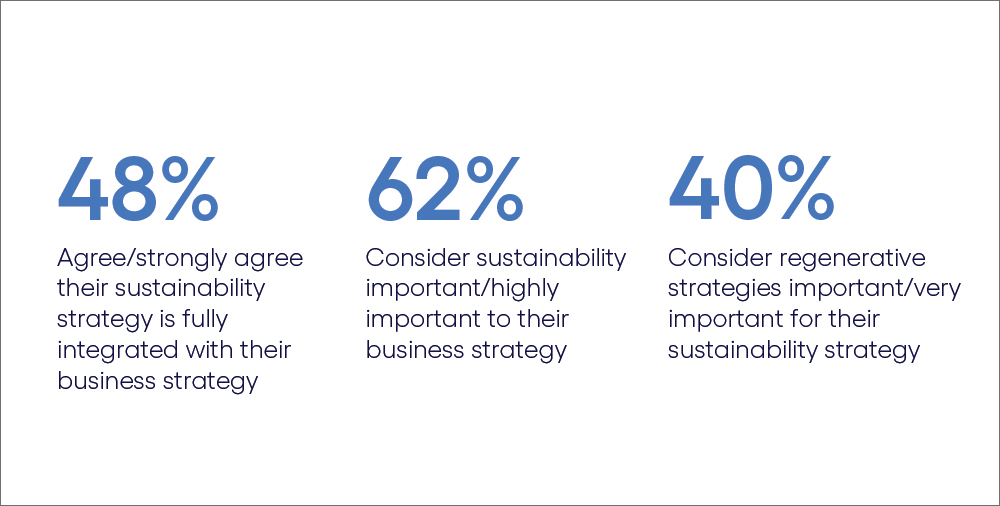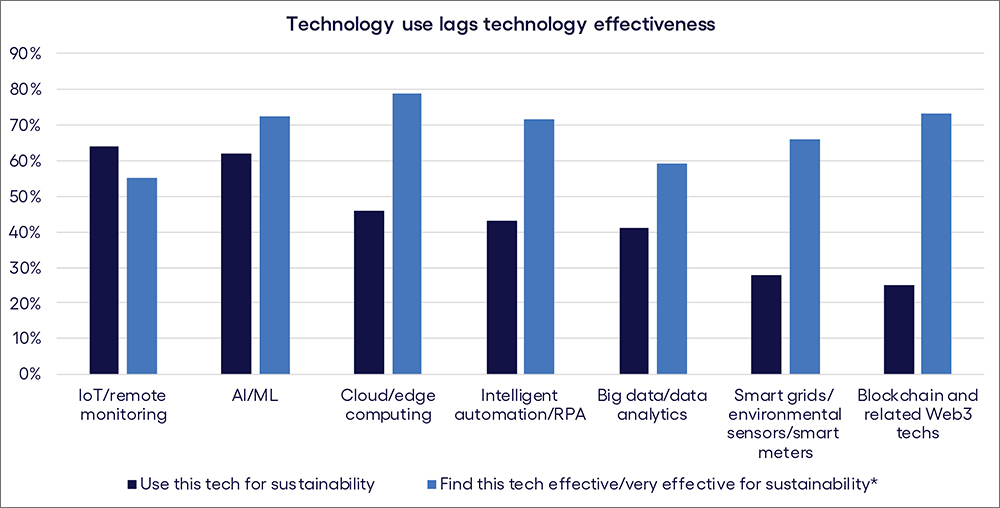Marketing: The unexpected leader in the gen AI revolution?
Our recent research demonstrates a surprising shift: It’s creative teams, not just technical teams, that are driving transformation through tools like generative AI.
Discover industry-specific solutions and expertise.
Solve your toughest A&D challenges with Belcan.
Ignite peak performance and efficiency in your business.
Reimagine your manufacturing competitive advantage.
Accelerate growth with customer-focused solutions.
Our data and AI solutions align with your business outcomes and create impactful results.
Personalize learning experiences with education tech and IT solutions—and make learners feel valued.
Create strategies for product, service and process innovation that deliver new growth.
Meet customer demands for a digital, personalized online insurance experience—while reducing risk.
Digitally transform to empower a more intelligent, agile and high-performing enterprise.
Make business decisions based on real-time contextual data with our digital solutions.
Stay ahead of the competition with the latest tech like IoT, machine learning and blockchain.
Deep industry expertise to propel your business into the future.
Explore Belcan’s flexible, custom-tailored solutions.
Put AI to work and turn opportunity into value.
Accelerate time to value for industrial edge AI.
Maintain high integrity across the AI lifecycle.
Realize the next frontier of enterprise performance.
Enhance operations, boost efficiency, remove technical debt and modernize apps for the future.
Operate with insight and speed—using AI-powered processes that supercharge performance.
Boost operational efficiency, optimize costs and speed product development.
Reimagine the customer experience, attract and retain top talent, and win in the digital economy.
Sense change, optimize operations and mitigate risk with data-driven insights at quantum speed.
Enable a more secure and value-centered business with proven next-gen solutions.
AI insights to inspire enterprise transformation.
Understand and anticipate the needs of AI-empowered customers.
Invest in people to unlock the power of AI.
Bridge the gap between strong AI leadership and business readiness.
Explore the future of business with our Gen AI insights.
Explore the top focus areas that are important to Cognizant and our clients.
Dive into our forward-thinking research and uncover new tech and industry trends.
Check out our other insights and research—and the experts behind them.
Explore how our expertise can help you sense opportunities sooner and outpace change.
Discover industry-specific solutions and expertise.
Solve your toughest A&D challenges with Belcan.
Ignite peak performance and efficiency in your business.
Reimagine your manufacturing competitive advantage.
Accelerate growth with customer-focused solutions.
Our data and AI solutions align with your business outcomes and create impactful results.
Personalize learning experiences with education tech and IT solutions—and make learners feel valued.
Create strategies for product, service and process innovation that deliver new growth.
Meet customer demands for a digital, personalized online insurance experience—while reducing risk.
Digitally transform to empower a more intelligent, agile and high-performing enterprise.
Make business decisions based on real-time contextual data with our digital solutions.
Stay ahead of the competition with the latest tech like IoT, machine learning and blockchain.
Deep industry expertise to propel your business into the future.
Explore Belcan’s flexible, custom-tailored solutions.
Put AI to work and turn opportunity into value.
Accelerate time to value for industrial edge AI.
Maintain high integrity across the AI lifecycle.
Realize the next frontier of enterprise performance.
Enhance operations, boost efficiency, remove technical debt and modernize apps for the future.
Operate with insight and speed—using AI-powered processes that supercharge performance.
Turn big visions into practical realities with expertise that takes you further.
Boost operational efficiency, optimize costs and speed product development.
Reimagine the customer experience, attract and retain top talent, and win in the digital economy.
Sense change, optimize operations and mitigate risk with data-driven insights at quantum speed.
Enable a more secure and value-centered business with proven next-gen solutions.
Turn sustainability commitments into achievable milestones.
AI insights to inspire enterprise transformation.
Understand and anticipate the needs of AI-empowered customers.
Invest in people to unlock the power of AI.
Bridge the gap between strong AI leadership and business readiness.
Explore the future of business with our Gen AI insights.
Keep up with the trends shaping the future of business—and stay ahead in a fast-changing world.
Explore the top focus areas that are important to Cognizant and our clients.
Dive into our forward-thinking research and uncover new tech and industry trends.
Check out our other insights and research—and the experts behind them.
Explore how our expertise can help you sense opportunities sooner and outpace change.

February 09, 2024
Food and agriculture businesses have been slow to adopt the technologies needed for regenerative agriculture methods, according to our recent study. Here’s how they can overcome key challenges.
The food and agriculture (F&A) industry is both highly vulnerable to environmental risks and a major contributor to them. However, the actions taken to address the industry’s greenhouse gas emissions and adapt to increasingly frequent severe weather events have fallen well short of reflecting the urgency of the situation.
The impact of this inaction goes well beyond the industry. It’s not only producers and growers, commodity trading companies, food processors and manufacturers that pay the price: it’s the global economy itself. According to the UN Food & Agriculture Organization (FAO), the environmental “hidden costs” of the world’s agri-food systems totaled some $2.87 trillion in 2020 purchasing power parity.
The risks inherent to the industry’s intensive agricultural practices cannot be overstated. Research indicates that between 20% and 40% of the global land area is already degraded or degrading to some extent. If this trajectory continues, we will not only be consuming less nutritional food but will also end up with even less arable land to feed the global population.
Aware of this situation, 159 countries late last year signed the Emirates Declaration on Sustainable Agriculture, Resilient Food Systems and Climate Action. However, meaningful action depends on the hands-on involvement of F&A businesses.
To gauge their attitude on this crucial topic, we surveyed 3,000 senior executives, including 295 from the food and agriculture industry, in partnership with Oxford Economics. Our findings revealed that, while executives widely acknowledge the need to focus on sustainability, the industry’s initiatives remain limited in scope. (For the full study, see “Deep Green: how data, technology and collaboration will drive the next phase of sustainability in business.”)
For instance, less than half (48%) agree or strongly agree their sustainability strategy is fully integrated into their corporate business strategy. Moreover, only 62% consider environmental sustainability an important or highly important part of their overall business strategy—a shockingly low share given the existential threat this area poses to the industry.
The truth is, since intensive monoculture releases CO2 stored in the soil and undermines biodiversity and crop resilience, as long as F&A companies follow this practice, they are increasingly vulnerable to extreme weather.
Fortunately, there is a viable alternative: regenerative agriculture. This is an approach based on techniques such as crop rotation and agroforestry, among others, to improve soil and ecosystem health. It makes soils richer, helps them retain carbon and boosts biodiversity and growers’ incomes—all while increasing resilience to extreme weather. Modern technologies can turbocharge regenerative practices by providing precise, real-time data across multiple parameters.
It sounds like a no-brainer, but in our study, only four in 10 F&A companies consider regenerative strategies important or very important for their sustainability strategies.
Our study revealed low levels of engagement in sustainability efforts, especially when it comes to pursuing regenerative strategies.
Base: 250 senior leaders in food and agriculture
Source: Cognizant and Oxford Economics
Figure 1
Inertia and overwhelm in the face of a big, highly complex problem partly explains the inaction. But we’ve identified three actions F&A businesses could take to move forward with a regenerative approach and achieve a more sustainable way of producing food: invest in data collection and governance, make the most of precision agriculture technologies and build partnerships focused on the longer term.
In agriculture, as in many other industries, high-quality data is key to making good choices. Data-driven insights on everything from short- and long-term weather forecasts to soil acidity can help growers boost the regenerative potential of their activities and make their fields more resilient to extreme climate events.
Technologies such as remote sensing (satellites and drones), water quality sensors and crop monitors are crucial. Artificial intelligence (AI) and advanced data analytics translate data into actionable insight. Strong data governance, meanwhile, is key to maximizing data quality and security.
As different F&A players invest in data collection, sharing and governance, their efforts will benefit their partners, creating a symbiotic relationship that increases the resilience of the industry as a whole. Today, however, only 42% of F&A respondents in our study have deployed analytics tools to generate insights to boost their sustainability performance.
By addressing two specific challenges, F&A companies could make giant strides in their data collection and governance efforts:
Precision agriculture is a necessary and natural complement to regenerative agriculture. It also supports data management, which in turn makes it even more effective.
By using technologies such as on-ground sensors, geopositioning systems (GPS), geographic information systems (GIS) and remote sensing, farmers can generate real-time data that allows them to manage their crops more efficiently, reduce the use of water and fertilizers, improve soil nutrients and reduce greenhouse gas emissions. For instance, GPS, GIS and remote sensing can enable farmers to tailor their water use to the needs of different parts of their farms.
Technologies such as IoT and remote sensing collect data on soil composition, the weather and biodiversity. Using this data as inputs, cloud-based AI solutions can then generate location-specific recommendations. This reduces costs, boosts productivity and enables farmers to take preemptive actions to avoid pests and disease with minimized use of pesticides.
Unsurprisingly, a growing number of farmers have been moving toward precision agriculture technologies. As of 2019, according to the US Department of Agriculture (USDA), 64.5% of cotton farmers in the country were using auto-steer guidance systems, and 40% of all US farms deployed GPS systems.
However, as our survey indicates, the industry is still far from making the most of the sustainability opportunities provided by precision agriculture.
While an impressive 64% of F&A executives in our study said they’ve adopted IoT, only 46% and 41% have implemented cloud/edge and big data analytics, respectively, to improve their sustainability efforts. At the same time, the majority of those who have adopted these technologies found them to be effective or very effective (see Figure 2).
Base: 250 senior executives from food and agriculture companies
*Reflects the share of respondents whose companies have used this technology to improve their environmental performance
Source: Cognizant and Oxford Economics
Figure 2
In a recent study of two durum wheat farms in central Italy, research revealed that the farm that adopted precision agriculture technologies was substantially less affected by the 2022 surge in input prices than the one that did not. Separately, a study by the University of Reading found that another precision agriculture technique—robotic chemical spraying—reduced chemical use by 95%.
Many F&A companies fear that, even if the longer-term environmental and financial benefits of regenerative agriculture are worth the effort, in the short-term they may see a costly fall in production.
This dilemma between immediate and long-term rewards is reflected in our survey. Even as 55% of F&A companies expect their sustainability initiatives to improve their business performance in the mid- to longer-term, half believe it is difficult to convert long-term sustainability targets into short-term actions.
Real-world evidence suggests the medium- and long-term gains far outweigh possible initial loss in yields and set in motion a virtuous cycle of growth. A 40-year side-by-side field study by the Rodale Institute found that regenerative organic farm yields were similar to those of conventional farms in the absence of extreme climate events, such as droughts and floods, but substantially higher during those situations.
However, no grower can adopt a regenerative model alone. Farmers need to rely not only on a clear vision and good planning, but also on an ecosystem of partners, from finance providers to suppliers and traders, willing to support it. Such partnerships would help food producers in the following ways:
The transition to a resilient, sustainable food supply chain benefits everyone, from financiers and farmers to retailers and consumers. Technology can, and should, be put to the service of regenerative agriculture to make this essential transition a reality.
F&A companies willing to look beyond possible initial turbulence will secure their own future, while leading the way for the rest of the food ecosystem.
Learn how your business (or you) can become sustainable to the core in our report, “Deep Green: How data, technology and collaboration will drive the next phase of sustainability in business.”
Our recent research demonstrates a surprising shift: It’s creative teams, not just technical teams, that are driving transformation through tools like generative AI.
Today’s horse-race coverage of artificial general intelligence fails to consider its implications.
As agentic AI systems continue to evolve, they will become an indispensable part of the modern financial infrastructure.
In-store retail is enjoying a renaissance—and with it, familiar challenges. Judicious use of AI in retail can help businesses thrive in this new era.
Edge AI is a crucial step for AI-connected living. It also introduces challenges that telecoms and original design manufacturers need to be wary of to thrive in the era to come.
Sign up for the Cognizant newsletter to gain actionable AI advice and real-world business insights delivered to your inbox every month.




